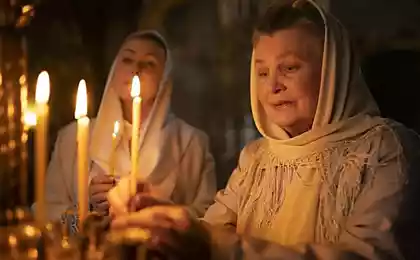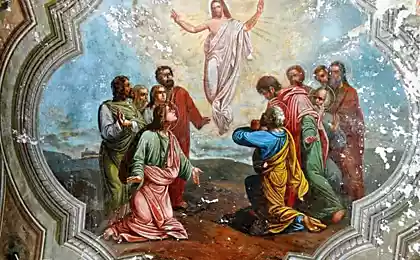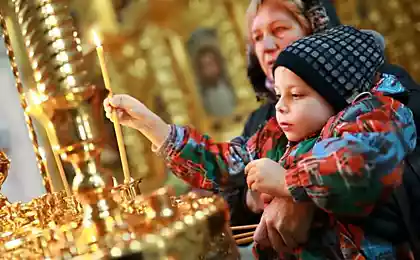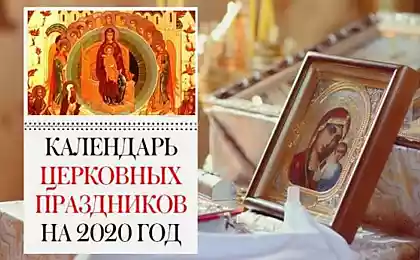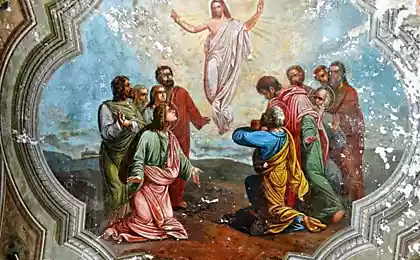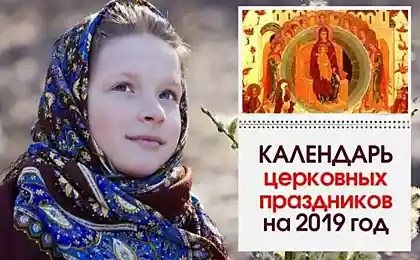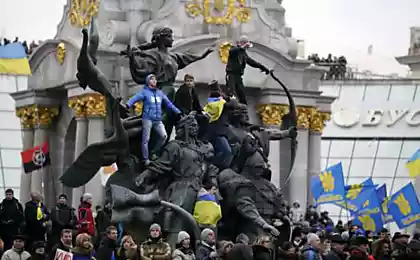266
Blogger Shreik: December 25 is not Catholic Christmas, it's just Christmas!
Christmas is one of the most important holidays when Christians around the world joyfully celebrate the birth of the Savior in Bethlehem. Christmas is celebrated all over the world, only dates vary. I was always surprised. Why Orthodox Christmas It lags behind Catholic by 13 days: Catholics celebrate Christmas on December 25, and Orthodox – on January 7.
By the way, in 2101 Christmas, which the Russian Orthodox Church traditionally celebrates on the Julian calendar, actually have to celebrate a day later. What about the post? It turns out that New Year’s Eve, which, by the way, we meet according to the Gregorian calendar, falls on the post.

While Catholics finish fasting on Christmas, and boldly set generous tables on New Year’s Eve, we frantically eat at the New Year’s table, and then continue to fast. Is that right?
"Site" Let me tell you why December 25 is not Catholic. Christmas, just Christmas! And why is it not sinful for a parishioner of the Orthodox Church to celebrate Christmas 13 days earlier?
Why do Christians around the world celebrate Christmas at different times? The thing is that it is not so much the date of the holiday that differs, as Julian and Gregorian calendarsAccording to which believers celebrate religious holidays.
Christians who celebrate Christmas on December 25 follow the Gregorian calendar. The rest also celebrate Christmas on December 25, but according to the Julian calendar, which corresponds to January 7 in the modern Gregorian calendar.

The Julian calendar was introduced in 45 BC by Julius Caesar. According to this calendar, the year begins on the first of January and has 365 days in a normal year, and every four years comes the so-called leap year, in which another day is added - February 29. However, astronomers from Alexandria were not very accurate: every 128 years, an extra day accumulates, and this is not taken into account.

Therefore, in 1582, by the decision of Pope Gregory XIII, the Julian calendar was changed to a more accurate one and called Gregorian. The rejection of the Julian calendar first affected Catholic countries, and then Orthodox.
In Russia, the Gregorian calendar came under Soviet rule. However, the Orthodox Church of such a decision disapproved It continued to operate according to the Julian calendar.

Interestingly, together with the Russian Orthodox Church on the night of January 6-7, the feast of the Nativity of Christ is celebrated by the Georgian, Jerusalem and Serbian Orthodox Churches.
It remained to function in the old style and the Athos monastery, which is under the jurisdiction of the Patriarchate of Constantinople. Ukrainians from this year celebrate Christmas twice: December 25 and January 7.

Today, the actual difference between the old and new calendars is 13 days, and it’s constantly increasing. If in the XVIII century the difference between the calendars was only 11 days, then in the XXIII century it was That'll be 15..
By the way, if those who remain to follow the Julian calendar do not switch to the modern Gregorian calendar, then a century later our descendants will celebrate Christmas in the old style on January 8, and two centuries later on January 9!

But what is the most important thing about Christmas? Not the date of his celebration, right? The accuracy of the calendar is useless, because the significance of this great Christian holiday is incomparable. No matter how you celebrate this holiday, we wish you a Merry Christmas!
By the way, in 2101 Christmas, which the Russian Orthodox Church traditionally celebrates on the Julian calendar, actually have to celebrate a day later. What about the post? It turns out that New Year’s Eve, which, by the way, we meet according to the Gregorian calendar, falls on the post.

While Catholics finish fasting on Christmas, and boldly set generous tables on New Year’s Eve, we frantically eat at the New Year’s table, and then continue to fast. Is that right?
"Site" Let me tell you why December 25 is not Catholic. Christmas, just Christmas! And why is it not sinful for a parishioner of the Orthodox Church to celebrate Christmas 13 days earlier?
Why do Christians around the world celebrate Christmas at different times? The thing is that it is not so much the date of the holiday that differs, as Julian and Gregorian calendarsAccording to which believers celebrate religious holidays.
Christians who celebrate Christmas on December 25 follow the Gregorian calendar. The rest also celebrate Christmas on December 25, but according to the Julian calendar, which corresponds to January 7 in the modern Gregorian calendar.

The Julian calendar was introduced in 45 BC by Julius Caesar. According to this calendar, the year begins on the first of January and has 365 days in a normal year, and every four years comes the so-called leap year, in which another day is added - February 29. However, astronomers from Alexandria were not very accurate: every 128 years, an extra day accumulates, and this is not taken into account.

Therefore, in 1582, by the decision of Pope Gregory XIII, the Julian calendar was changed to a more accurate one and called Gregorian. The rejection of the Julian calendar first affected Catholic countries, and then Orthodox.
In Russia, the Gregorian calendar came under Soviet rule. However, the Orthodox Church of such a decision disapproved It continued to operate according to the Julian calendar.

Interestingly, together with the Russian Orthodox Church on the night of January 6-7, the feast of the Nativity of Christ is celebrated by the Georgian, Jerusalem and Serbian Orthodox Churches.
It remained to function in the old style and the Athos monastery, which is under the jurisdiction of the Patriarchate of Constantinople. Ukrainians from this year celebrate Christmas twice: December 25 and January 7.

Today, the actual difference between the old and new calendars is 13 days, and it’s constantly increasing. If in the XVIII century the difference between the calendars was only 11 days, then in the XXIII century it was That'll be 15..
By the way, if those who remain to follow the Julian calendar do not switch to the modern Gregorian calendar, then a century later our descendants will celebrate Christmas in the old style on January 8, and two centuries later on January 9!

But what is the most important thing about Christmas? Not the date of his celebration, right? The accuracy of the calendar is useless, because the significance of this great Christian holiday is incomparable. No matter how you celebrate this holiday, we wish you a Merry Christmas!

